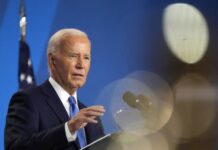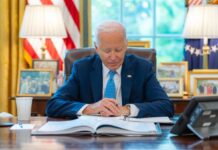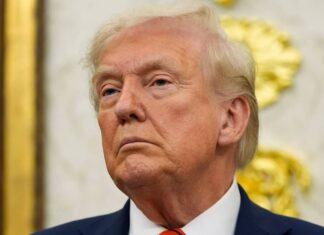Lebanon’s government resigned on Monday as the prime minister blamed “political corruption” for a massive explosion at Beirut’s port that killed more than 160 people and devastated the capital.
“I discovered that the system of corruption is bigger than the state,” Hassan Diab, the premier, said in an address, blaming resistance by entrenched political elites for his lack of reforms.
His resignation came amid intensifying anger among Lebanese people towards their leaders, whom many blamed for last week’s blast. The explosion was caused by more than 2,000 tonnes of ammonium nitrate, which can be used as a fertiliser but also for explosives. It had been stored at the port for six years.
Public fury spilled on to the streets over the weekend as thousands of people, some erecting scaffolds to hang effigies of their leaders, called for regime change. But many Lebanese are likely to question whether the resignations will bring genuine change to what they perceive to be a rotten political system.
Mr Diab took office in January after mass protests last year forced the previous government to resign. But his administration failed to tackle Lebanon’s worst economic crisis in decades, with the financial sector in a state of disarray and food prices and poverty levels soaring.
This clientelistic and sectarian system breeds corruption and incompetence.
The director of the Lebanese Center for Policy Studies, Sami Atallah, said he doubted that the resignations would usher in the political and social reforms Lebanese are demanding unless an effective transitional administration were to be appointed.
“This clientelistic and sectarian system breeds corruption and incompetence,” he said, adding that Lebanon’s old guard was “trying to throw the blame on this government and let it take the fall . . . so they distract the blame from them or their cronies”.
The roots of Lebanon’s political malaise date to the end of its 15-year civil war in 1990 and the decision to share power through sectarian quotas. Critics say this has created an entrenched political class of warlords or “chiefs”, who divide power and influence between themselves along sectarian lines.
Mr Diab’s government was touted as a technocratic administration rather than one staffed with veteran politicians. In his address he sought to distance his administration from the entrenched political class against whom thousands of Lebanese have risen up in protest.
He accused the political class of using “dirty techniques to retain . . . its ability to control the government” and preventing progress towards reforms.
However, his ministers were appointed through the sectarian power-sharing system. This undermined the administration’s credibility as technocratic as it struggled to address the economic crisis that had been exacerbated by the coronavirus outbreak. Several major parties had boycotted the last government, which had the backing of Hizbollah, the Shia Islamist militia and political party.
Lebanon’s president accepted Mr Diab’s resignation and asked the government to stay on in its caretaker role, the president’s office said in a statement.











